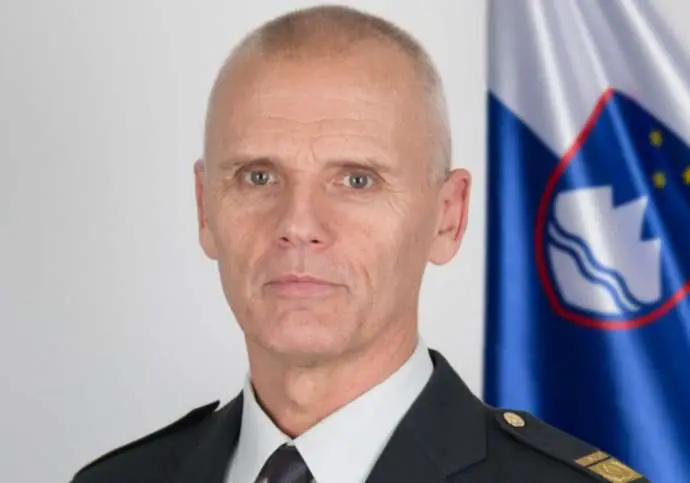STA, 20 April 2020 - Brigadier Robert Glavaš will formally take over as the new chief of the general staff of the Slovenian Armed Forces (SAF) on Monday. His major challenge will be staffing and modernising the underfunded army.
Born in 1962, Glavaš has been with the SAF since its beginnings in 1991, gaining experience and praise as a commander at home and abroad.
Before being appointed first as interim and then full-fledged chief of the general staff, Glavaš served as deputy to his predecessor, Maj-Gen Alenka Ermenc, who was dismissed at the new government's maiden session on 14 March. Earlier, he served as commander of the 1st Slovenian Armed Forces Brigade,
Glavaš, who specialised in transport sciences at the Faculty of Maritime Studies and Transport, has earned a reputation as a dedicated and broad-minded officer.
He has taken part in several international missions, serving as deputy chief of staff for support at Regional Command West, KFOR, Kosovo, contingent commander, ISAF, Afghanistan, and mentor to commander, 207th Corps, Afghan National Army.
He has also chaired different NATO exercise and training boards, headed the NATO CIMIC Centre of Excellence Steering Committee, and had assignments at tactical, operational and strategic levels in Slovenia and abroad as well as commanded units and branches in Slovenia and abroad.
His service has earned him a number of national and international medals and decorations, including Peace Peeping KFOR Medal, Non-Article Five ISAF Medal, EU Presidency Medal and the Italian Medal for Cooperation.
On Glavaš's appointment by the government on Thursday, Defence Minister Matej Tonin praised him for his operational skills, commitment and professionalism, adding: "I believe the is the right choice to lead the SAF in the future."
Glavaš has also been praised by Iztok Prezelj of the defence studies chair at the Ljubljana Faculty of Social Sciences, who mentored Glavaš on his thesis for the military HQ and commanders school in 2008.
In his thesis Glavaš deals with the security situation in the Balkans from a broad aspect, including nationalisms, organised crime, corruption, refugees and internally displaced persons.
Talking with the STA, Prezelj expressed the belief that such a broad-based approach was the most suitable for the present situation when the talk is of involving the SAF in securing the south border.
President Borut Pahor, the SAF supreme commander, knows Glavaš as "a professional soldier with experiences gained as a commander and at other military duties at home and abroad".
Pahor is planning to host Glavaš for a meeting this week. He is expected to shortly promote him to the rank of major general, with promotions usually taking place on 15 May, Slovenian Armed Forces Day.
Even before that Pahor is expected to unveil to the public the conclusions of the annual SAF readiness report, which will reveal the state of the legacy handed down to the new chief of the general staff.
Last year's report, covering 2018, found the SAF state of readiness for peacetime action satisfactory, but their capacity for wartime action remained unsatisfactory for the fifth straight year.
On receiving the report last year, Pahor proposed adopting a systemic law to secure funding for national security.
Like Glavaš's predecessor Ermenc, Pahor identified shortages of staff, equipment and armament as the key issues affecting the readiness assessment both for peacetime and wartime or crisis action.
During her stint, Ermenc was also warning of delays in the building of military capabilities. She found a 4% increase in the defence budget for 2020 insufficient for a development breakthrough.
According to data as of March this year, the SAF numbers 7,013 members, 6,353 members of the regular permanent force and 660 members of contract reserve. This is almost 3,000 short of the 10,000 target.
Minister Tonin believes part of a solution to filling up the shortages lies in extracting the SAF from the single public sector pay system.
He has also pledged to tackle the status of soldiers beyond the age of 45, and expressed support for reintroduction of conscription, saying he would like to attract the young eager to serve.
Apart from the staffing, Prezelj believes another challenge for the new team will be developing the SAF to boost its capacity to operate in various security scenarios and modernisation in the direction of forming two battalion-sized battle groups.
One of the goals will be investment in cyber defence capacities. "All those goals will obviously depend on an increase in defence spending. If these funds don't increase, most ambitions will be jeopardised," said the defence expert.







